.
Waylon Lewis of elephant journal recently asked four Boulder residents what inspired them to challenge the coal burning at Xcel’s 186 megawatt Valmont power plant. The challenge came in the form of a 100-foot long “RENEWABLES NOW” banner, unfurled on top of a huge pile of coal, the banner’s white letters a striking contrast to the black lumps of coal beneath. Standing atop the massive pile of coal, with the power plant’s giant smokestacks looming behind, the activists erected two home-made wind turbines, blades spinning, and waved at those rallying outside the property gates.
A few arrests followed.
It was a day of stark contrasts: clear blue skies filled with invisible greenhouse gases; sparkling wind turbines emerging from a dirty pile of coal; and handcuffs for those devoted to justice, green energy and a sustainable future. As you will read, what motivated the four—Erik Bonnett, Eric Ross, Kate Clark and Tom Weis—to action that day was a mixture of passion, frustration and duty.
After spending an hour and a half atop the coal pile, the four activists and a photo-journalist were arrested and taken into custody by the Boulder County Sheriff’s Department. They were released later that day, each charged under suspicion of second-degree trespassing, a misdemeanor that carries a maximum penalty of six months in jail and a $750 fine.
What inspired you to get off the couch and actually do something? Are you crazy, or do you think you can affect change?
Erik Bonnett: “Was the Boston Tea Party crazy? How about Rosa Parks or Martin Luther King, Jr.? When we arrived at the summit of the Valmont plant’s coal pile we erected a wind turbine in the manner of the soldiers raising the American flag at Iwo Jima. Although I am thoroughly committed to nonviolence, we used this image because it represents Americans making a personal sacrifice for what is right.”
Bonnett continues: “What is crazy is that Xcel Energy is trying to convince the public that switching a few smaller coal plants to natural gas is a step in the right direction, when at the same time they are bringing online the largest coal plant in the state. What is worse is that the smaller coal plants Xcel wants to convert to natural gas are in politically active places, like Boulder and Denver, while the enormous coal plant they are building is located in the primarily working class town of Pueblo, Colorado. I think Xcel is hoping citizens in Pueblo won’t put up as much of a fight as Xcel dumps mercury and other toxins into their community. That is unjust—I couldn’t just sit on the couch and let it happen.”
Eric Ross: “My activism springs from a moral outrage at the injustices of the world and a deep love for all inhabitants on this earth. Acting up and out in accordance with one’s values is not crazy. It’s the most sane thing one can do. In the words of Dr. Martin Luther King, I moved to break the ‘betrayal of my own silences and to speak from the burnings of my own heart.’ My hope was to light the way for others to help create a future worthy of our children. In the words of the famous poet and author, Alice Walker, ‘We are the ones we have been waiting for.’”
Ross continues: “The generations before us mobilized an entire nation to oppose fascism. Now, we too must have the courage, fortitude, and determination to mobilize our communities, our nation, and the world to confront the perils of the global climate crisis. I was deeply heartened by the tremendous outpouring of support from our community, which tells me that others are now willing to take the next step of birthing their values into action.”
Kate Clark: “No, I’m not crazy. What’s crazy is that those who are destroying the most important things in the world—including our air and water—get subsidized by the government. People trying to change that get arrested. People always have to create the change. They always have to lead the “leaders.” There is an incredible international movement building against coal and for a sustainable world. Less than 12 hours before the action at Valmont, folks in the UK locked themselves to a train track, blocking coal trains. In Newcastle, Australia, which is the largest coal exporting port in the world, people blocked a coal train the day after the failed Copenhagen talks with a banner that read: “Now It’s Up to Us All.” One of the people arrested for blocking the train was a Newcastle city councilor. In Appalachia, literally hundreds of people have been arrested in daring actions against mountaintop removal—and they are winning.”
Clark continues: “Gathering the will to leave coal behind requires shifting values. It means prioritizing public health, environmental sustainability and democratic decision-making. Citizens need to take action in order to create the political will for renewables.”
Tom Weis: “What inspired me to act was the craziness and disconnect I’ve been seeing around me for some time now. How can Boulder, a community that is green in so many ways, allow a dangerous coal plant to continue operating in its midst? Boulder has more climate scientists per square mile than probably anywhere on the face of the planet, yet we still allow more than 1 million tons of carbon dioxide to pour out of Valmont’s smokestacks every year. This is crazy. Boulder cherishes our children, yet we allow 20-40 pounds of mercury to spew out of those same smokestacks every year, poisoning the air our children breathe. This is crazy. Water is a precious resource, yet we allow this plant to consume more than 2 million gallons of water a day. This is crazy. Xcel talks about maybe ending the coal burning at this plant by 2017, when Boulder doesn’t even need the electricity generated from the coal burned at this plant today. This is crazy.
Weis continues: “Many people don’t realize that we don’t actually need the coal that is burned at Valmont. Last year, no coal was burned at this plant for months, yet Boulder’s electricity supply from Xcel continued uninterrupted. So the coal burning needs to stop, and what will stop it is more and more people speaking out. Everyone has personal power, and everyone can affect change. Margaret Mead had it right: ‘Never doubt that a small group of thoughtful, committed citizens can change the world. Indeed, it is the only thing that ever has.’ As the threats to our collective future from coal become increasingly clear to more and more people of conscience, I suspect we will see the use of peaceful civil resistance spread widely in the days, weeks and months to come.”
Colorado gets 82% of electricity needs met by coal; 90% by non-renewable sources. Without Valmont and/or coal-power, how can we power Boulder—what is the long-term plan/or the vision of our long term plan?
Erik Bonnett: “There is enough sun and wind in Colorado to power the western United States. There isn’t a shortage of energy, there is a shortage of political will. The coal and gas industries want to lock citizens into their energy sources for decades by building new plants and converting old coal plants to natural gas instead of retiring them. The price of renewables is going down, while the price of fossil fuels is going up. Choosing fossil fuels would be an expensive choice for citizens and makes our economy vulnerable.”
Bonnett continues: “Providing Colorado with 100% renewable energy is not easy, but neither was putting a man on the moon. What is more important is that it is possible with a combination of energy efficiency and renewable energy investment. Switching to 100% renewables will require companies like Xcel Energy to become more creative and reinvent themselves. That is why political pressure is so important to send the message to Xcel executives that they must change.”
Eric Ross: “The citizens of Boulder have spoken loud and clear that we don’t want a coal plant. We have the technology and resources to do otherwise. The biggest obstacle is the profit motive of an unresponsive power company. If they aren’t with us, we will go in our own direction, one that has at its heart the best interests of the community.
Ross continues: “Although this action took place at our local power plant, we stand in solidarity with the citizens of Pueblo who oppose the opening of the new 750 megawatt Comanche 3 coal plant. We should not be doing business with corporations that are uncaring and insensitive towards the needs, health and well-being of the communities in which they operate.”
Kate Clark: “Boulder and Colorado as a whole have vast renewable energy resources. In fact, bids for renewable energy projects have already been submitted that, if approved, would provide more than two times Colorado’s peak demand. We don’t need the Valmont coal plant in Boulder and we absolutely don’t need a new coal-fired power plant—the largest in the state—to come online in Pueblo.”
Clark continues: “Boulder’s franchise agreement with Xcel is up for renewal in August. If Xcel does not meet the public’s clean energy demands, the agreement should not be renewed. This gives us the option of pursuing contracts with other power providers or creating a local publicly-controlled utility to democratize our energy production. But a sustainable Boulder must be more than just renewable energy. We also need people creating more community gardens and biking to work. We need people attending public hearings and organizing rallies. And we need people engaging in non-violent direct action. Boulder has the ability, the resources and the passion to become a truly green community, so let’s do it!”
Tom Weis: “Xcel likes to say 100% renewables is not achievable and that renewables are too expensive. What you won’t hear them say is that with carbon regulations on the immediate horizon, the cost of coal and other fossil fuels are only going up, while solar and wind (the latter is already cost-competitive with coal), are rapidly coming down. For Xcel to say we can’t do 100% renewables by 2020, when we haven’t even tried, is a slap in the face to American ingenuity. We have the National Renewable Energy Laboratory (NREL) right down the road! I’m sure there were also some in the 1960s who said we couldn’t land a man on the moon, but we did it. The decarbonization strategy we’re advocating is a step-wise approach (to maximize system reliability and minimize ratepayer risk) that increases renewables’ share of our local electricity generation by 10% or more each year, until the 100% goal is achieved.
Weis continues: On the state level, Colorado’s recently passed 30% by 2020 statewide renewable portfolio standard falls woefully short of the 100% by 2020 goal we need. Similarly, Colorado’s recently signed Clean Air-Clean Jobs Act gives Xcel until 2017 to decrease coal burning at some of its Front Range coal plants. This is far too long. This bill also portrays natural gas, which is still about half as carbon-intensive as coal, as the solution. Natural gas is not the solution, and should only be viewed as a stopgap to help firm up the grid as storage technologies for renewables are put into place. NREL tells us, for example, that with the addition of thermal storage, concentrating solar power technologies can provide dispatchable power during periods when demand on the utilities is at its peak, even when the sun isn’t shining, which makes this a viable baseload power source for Boulder. My larger point is it is time to replace political timidity with civic boldness. As the saying goes, ‘If the people lead, the leaders will follow.’ The time for action is now. If we are to have any hope of heading off global climate catastrophe, we need all hands on deck.”
You can contribute to the legal defense of the activists through paypal.
~
Power Plant Arrests – Images by Ethan Welty



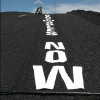

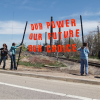
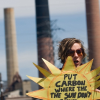

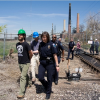
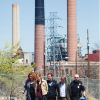







Read 3 comments and reply